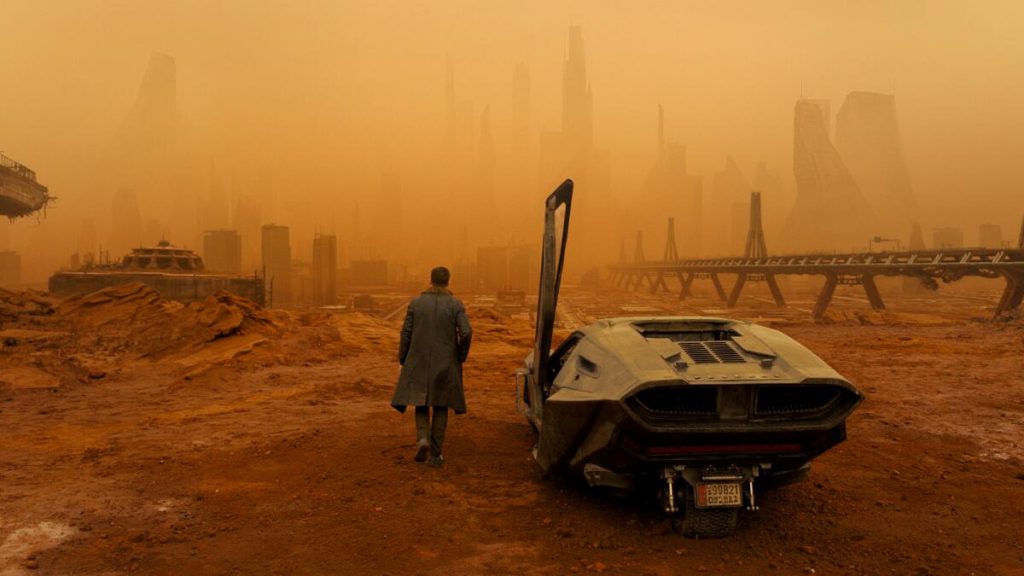Elon Musk is facing a legal challenge from Alcon Entertainment, the production company behind Blade Runner 2049, over the use of AI-generated imagery at Tesla’s recent We, Robot event. The lawsuit, filed by Alcon, names Tesla, Musk, and Warner Bros. Discovery as defendants, alleging copyright infringement related to promotional materials that resembled stills from the acclaimed 2017 sci-fi film.
The controversy arises from an incident that took place just hours before the We, Robot event, which was hosted on the Warner Bros. lot in California. According to Alcon, Tesla and Warner Bros. requested permission to use imagery from Blade Runner 2049 on the afternoon of October 10, but their request was denied. Alcon holds the copyright for the film and informed Tesla and Warner Bros. that any use of the images needed direct clearance from them. The studio’s legal and licensing departments made it clear that they wanted to avoid any potential issues related to the event, emphasizing that they did not wish to have their work associated with Musk or Tesla due to his often controversial public persona.
In its legal filings, Alcon explained that its decision stemmed from concerns about Musk’s behavior, which has sometimes been described as unpredictable and politically charged. The lawsuit articulates that any brand considering a partnership with Tesla must weigh Musk’s controversial public statements and actions, which the company feels could negatively impact the Blade Runner franchise. Alcon expressed apprehension about having their brand associated with Musk, indicating that they wanted to maintain a distinct separation between their intellectual property and the polarizing figure of the Tesla CEO.
Despite Alcon’s refusal to grant permission, the lawsuit alleges that Tesla proceeded to use an AI image generator to create promotional materials that incorporated elements from Blade Runner 2049. These AI-generated images included a stylized depiction reminiscent of the film, prominently displayed during the We, Robot event. During the presentation, Musk referenced the Blade Runner franchise while discussing future technological possibilities, further drawing a connection between Tesla’s vision and the cinematic world of the film.
The event featured a notable image that depicted a character in a duster jacket against a backdrop of a dystopian cityscape, echoing the visual style of Blade Runner 2049. This specific choice of imagery, according to Alcon, was not only unauthorized but also highlighted a lack of respect for their intellectual property rights. The lawsuit emphasizes that both Tesla and Warner Bros. were aware that the images used were unauthorized and that their actions encouraged or supported this infringement.
Additionally, Alcon claims that they were not informed about any agreements between Tesla and Warner Bros. that would have allowed Tesla to use the Warner Bros. lot and equipment for the We, Robot event. The production company argues that such agreements should have included provisions regarding promotional materials, which could have involved the affiliation of Tesla’s products with films from Warner Bros.’ catalog. This lack of transparency has compounded Alcon’s frustrations, as they believe their rights and the integrity of their intellectual property were compromised.
The legal action taken by Alcon raises significant questions about the implications of using AI-generated content in promotional contexts, particularly when it involves established intellectual property. As AI technology becomes more integrated into creative processes, the lines between inspiration and infringement can blur, leading to complex legal challenges. This case serves as a stark reminder of the necessity for clear licensing agreements and respect for copyright in the rapidly evolving landscape of AI and digital media.
Alcon’s lawsuit does not specify a particular amount for damages but indicates that the company seeks recompense for what it believes to be a willful violation of its copyright. The legal filing suggests that all parties involved were aware of the unauthorized nature of the imagery and its intended use, and that this awareness underlines the gravity of the infringement.
As the case unfolds, it will likely draw attention not only from the tech and automotive industries but also from the entertainment sector, as companies navigate the complexities of intellectual property rights in the age of AI. The outcome could have broader implications for how brands utilize AI-generated content and the responsibilities that come with it.
The controversy surrounding the We, Robot event highlights a critical juncture in the relationship between technology and creativity. With AI becoming an increasingly powerful tool for generating visual content, the potential for misuse and infringement looms large. The legal principles established in cases like this one may shape the future landscape of both AI and copyright law.
In conclusion, the lawsuit filed by Alcon Entertainment against Elon Musk, Tesla, and Warner Bros. Discovery underscores the challenges of integrating AI into promotional practices while respecting intellectual property rights. As this case progresses, it will be important to monitor how it influences both the technological landscape and the legal frameworks governing copyright, as companies increasingly rely on AI to create content that intersects with established creative works.
